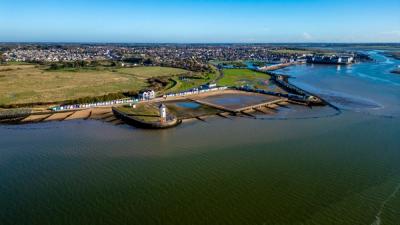Desalination
Desalination is not an uncommon source of water supply in other parts of the world. It is the process through which seawater is forced through a membrane at high pressure to remove salts, minerals, and other elements. Desalination could be, however, an energy intensive process and returns a concentrated brine waste to the environment. Based on current targets for Net Zero, a method will need to be found to reduce the carbon intensity of desalination and the environmental impact of the brine before desalination is taken forward.
Regional water plans that consider desalination therefore refer to ‘next generation’ desalination – an option planned for the long term as part of an adaptive strategy that will change if demand can be reduced, or alternatives measures can be found.
Due to the extent of pressures, we face, the current Water Resources Management Plan for Anglian Water suggests that three new ‘next generation’ desalination plants may be needed to provide a total of 50Ml/d for their customers beyond 2040. One plant is proposed in Holland on Sea, Essex, and others in Norfolk (Bacton) and Lincolnshire (Mablethorpe).
